Graham Reid | | 4 min read
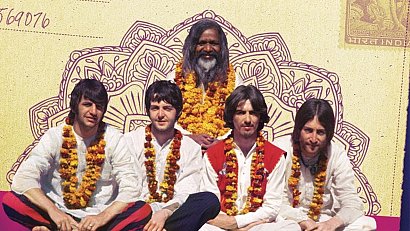
The title of this 90 minute documentary is interesting in itself: it is not “The Beatles in India”, because that would be largely confined that period in early 1968 when they attended the Maharishi Mahesh Yoga's ashram in Rishikesh, Northern India.
The title being “and India” means it can look at the broader influence of the Indian instruments, music and philosophy on the Beatles before, during and after that period.
After all, George Harrison introduced the sitar on Norwegian Wood on the Rubber Soul album in '65, Lennon's Rain the following year was influenced by Indian drone, on Revolver that same year Harrison's Love You To was entirely based on Indian music and instrumentation, and even Lennon's Tomorrow Never Knows on that album deployed drone, Indian instruments and his new found interest in esoteric literature and philosophy (in this instance Tibetan Buddhism).
And so it went: sitar, tabla and tamboura, Harrison's Within You Without You on Sgt Pepper, Baby You're a Rich Man on the flipside of the All You Need is Love single . . .
By the time the Beatles got to Rishikesh (“place of the wise ones”) they had been smitten by the Maharishi and his meditation techniques, Indian music and philosophy, and were sorely in need of a break after the death of their manager Brian Epstein and the derision heaped on their Magical Mystery Tour movie.
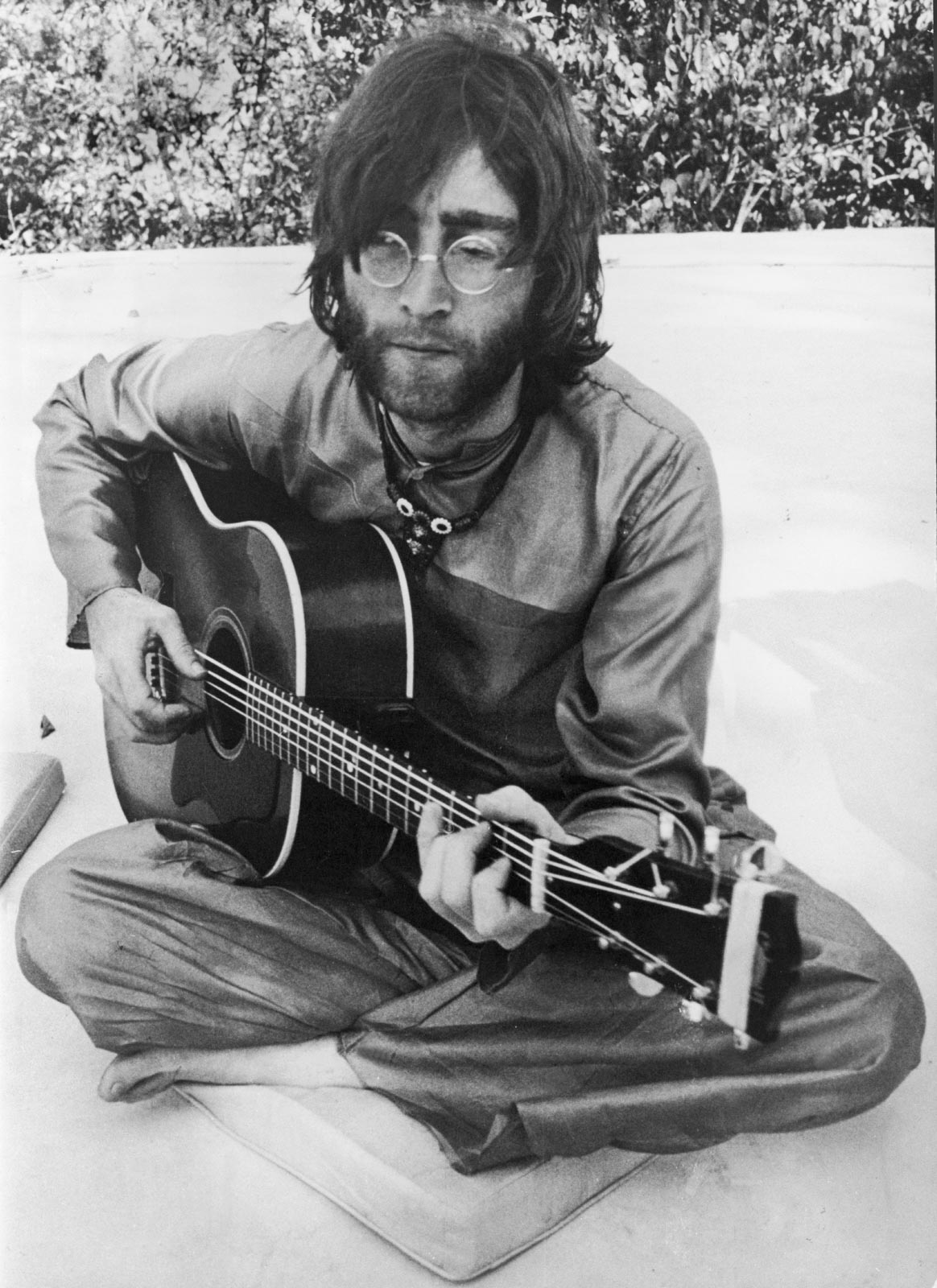 So this film takes a broader view through period newsreel footage and Indian feature films which betray a Beatle/Western pop influence, and the Beatles – who were also writing songs (many of which would appear on The White Album) – as well as meditating.
So this film takes a broader view through period newsreel footage and Indian feature films which betray a Beatle/Western pop influence, and the Beatles – who were also writing songs (many of which would appear on The White Album) – as well as meditating.
With voice overs from the Beatle and extensive period footage, starting with Beatlemania then leaping ahead to Norwegian Wood and the Indian stereotypes in the film Help! and back to colonialism and Empire.
Speakers include Beatle expert Mark Lewisohn, director Bose, people who met them when they passed through Delhi in '66 (the owners of the Lahore Music Store where they “were selling sitars like hot cakes” after the Beatles visit when they came to buy instruments), Ravi Shankar in archival footage, Shankar's musical disciples, Pattie Boyd on her trip with Harrison to study with Shankar and experience Indian culture, various Indian more recent musicians, the Maharishi . . .
Of as much interest as the Beatles being influenced by Indian musicians is the converse: groups like the Savages who followed British pop, harmonies and hairstyles.
Then there was the conjunction of LSD, Indian music, a search for spirituality and the Maharishi, the retreat to Bangor, the death of Epstein . . .
At the ashram there is footage and still photos.
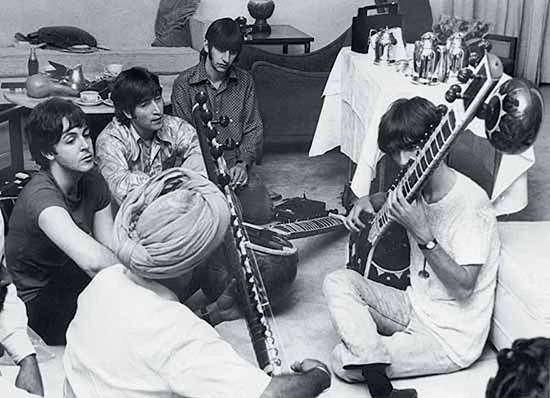 Not every testimony about the Maharishi and his meditation technique is favourable however. And left-wing Indian politicians asserted the ashram was a hotbed of CIA spying.
Not every testimony about the Maharishi and his meditation technique is favourable however. And left-wing Indian politicians asserted the ashram was a hotbed of CIA spying.
A KGB agent Yuri Bezmenov talks about being sent to the ashram at the time to check it out and concluded the devotees would return to the West zonked out of their brains on meditation and hashish to spread these ideas as distractive propaganda and the demoralisation of American society.
When two American film crews arrived in Rishikesh because the Maharishi promised both exclusive right to shoot him and the Beatles, Lennon and Harrison who were still there – Ringo had bailed early, McCartney not long before – baulked and decided to get out.
Although Boyd says she knew Lennon wanted to get back to see Yoko Ono, and Magic Alex's arrival also changed the dynamic: the so-called electronic wizard wanted to regain his hold over Lennon and started spreading poisonous ideas about the Maharishi.
It was a complicated ending to what had been a welcome and refreshing sabbatical in the Beatles' hectic career.
“We had a nice holiday in India,” said a tight-lipped John Lennon afterwards, “and came back rested”.
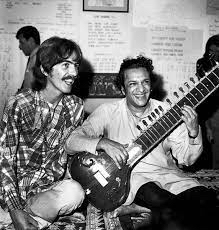 Of the Maharishi McCartney said later, “He's still a nice felluh and everyone's fine, but we don't go out with him anymore.”
Of the Maharishi McCartney said later, “He's still a nice felluh and everyone's fine, but we don't go out with him anymore.”
However the influence of Indian culture, music and spirituality before and after their sojourn certainly changed them, just as the Beatles influenced aspects of Indian pop music and for many Indians in the post-colonial world their presence vindicated Indian culture as being valuable and unique.
Harrison however never left India – the music, spirituality and culture – behind, and later in life went back to see the Maharishi (who died in 2008) to apologise for their sudden departure.
McCartney too went to see him and found the Maharishi utterly forgiving.
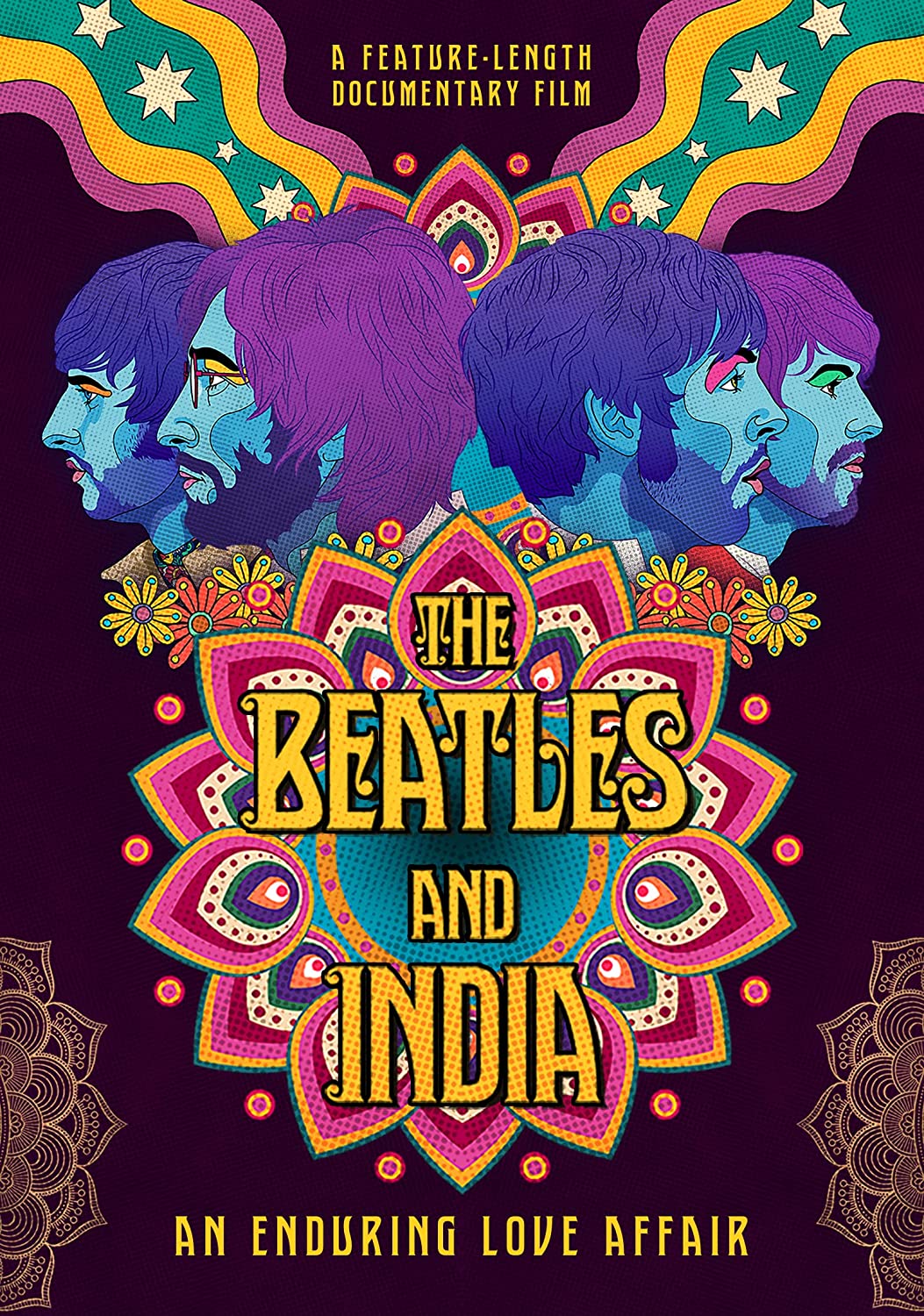 For the Beatles, the dream was over, for others another had begun because the group had given impetus to the emerging “hippie trail” in the late Sixties/early Seventies.
For the Beatles, the dream was over, for others another had begun because the group had given impetus to the emerging “hippie trail” in the late Sixties/early Seventies.
Today there are tour guides taking people around the ashram, now a sad, overgrown and abandoned place, once the place of a bucolic escape for the Beatles.
Later a more considered Lennon would say the happiest time of his life was in India.
.
The Beatles and India is available now on DVD and BluRay.
.
Elsewhere has previously reviewed the soundtrack to this film and music inspired by it here.

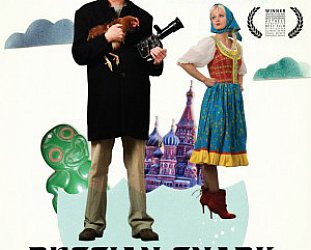



post a comment